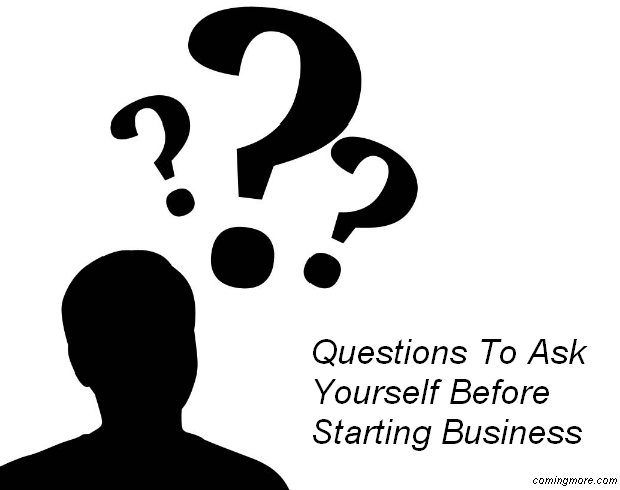A surprising number of people start businesses and avoid thinking through the numbers, hoping that their passion alone will keep their business afloat and the money rolling in. It’s too easy to underestimate how quickly you’ll burn through your money. That’s why 50% of businesses end up failing within their first 5 years.

In the last decade, Nigeria has seen an incredible rise in the number of startups emerging on a daily basis. This could be due to the fact that the world is quickly changing and this generation is more interested in building businesses that can change the world, or because there are not enough jobs for every one who is currently unemployed.
Whichever the case, starting a business is serious business, and careful thought needs to go into it before proceeding. Just before you start, here are a couple of questions to ask yourself:
What are you selling?
A fundamental question you will need to answer is: What are you selling and why do people need it? If you don’t have an answer to this question, you aren’t offering value to anyone, and you do not have a business. Put your product in front of your target market and get honest feedback from potential customers. Do your research and ensure there is a viable market of people out there who would actually buy what you are selling.
Why should people buy from you?
If your product or service is something to be desired, there are likely many others offering the same thing in the market place.
What’s the unique factor that makes people want to buy from you?
Is it your years of experience in the industry? Your top-notch customer service? Or perhaps it is your unparalleled quality? It is advisable you inject your one-of-a-kind personality into your brand to make your business more personal and relatable.
Is your idea scalable?
Many successful enterprises have humble beginnings, but when growth happens as planned, you won’t be able to fly solo anymore. Scalability of your business is what truly takes it to the next level. A scalable business is one that is able to produce more of their products for incrementally lower costs.
How committed are you to making this happen?
Entrepreneurs will happily work a minimum of 100 hours for themselves, rather than work 40 hours a week for someone else. The question is: are you willing to burn 100 hours a week for the next two years to get your business off the ground? At the beginning, it will mean sacrificing plenty of evenings and weekends. It also means scaling back on some luxuries such as vacations, big purchases, or nights out, until your business starts bringing in money.
Are you a farmer or a hunter?
As an employee, you get paid to do … your job. You don’t have to worry about how the company is run behind the scenes. Your higher-ups set goals, and a regular pay cheque is deposited into your bank account. Much like a farmer, you tend to your plot, plant your seeds, and reap what you sow. You take comfort in the predictability of the seasons.
As an entrepreneur, you have to do everything yourself (or hire someone to help you). You set your own goals and execute them in the best way you know how. Entrepreneurs are a different breed — they possess the hunter mindset and will constantly seek opportunities that challenge the status quo.
How will you fund the business?
While some businesses require significantly more start-up capital than others, you will definitely need to set aside some cash before you start operating. It is important you figure out how much money you need to start, and where the funds will come from.
Some sources are:
- Personal savings.
- Borrowing from friends or family.
- Bank loans.
- Angel investors or venture capital.
- Equity.
What are your financial projections?
A surprising number of people start businesses and avoid thinking through the numbers, hoping that their passion alone will keep their business afloat and the money rolling in. It’s too easy to underestimate how quickly you’ll burn through your money. That’s why 50% of businesses end up failing within their first 5 years.
What is your game plan?
We’re all busy people juggling multiple commitments in life. But when it comes to embarking on a life-changing journey, there’s no better time to start than now. Change is hard — it’s easy to come up with a thousand reasons why you’re not ready to do something, but all you need is that one good reason to take your first step.
That’s what differentiates the go-getters from those who never make it out of the gate. To increase your chances of success, be realistic about your situation and what you’re willing to do.
I look forward to working with you to start, grow or improve your business.









